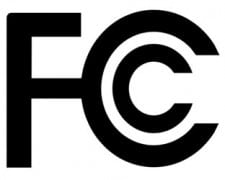 According to the FCC, there are less than 500 non-commercial student-run stations in the US, and by their very nature they are (1) prone to commit rule violations, and (2) likely to have difficulty paying resultant fines. In view of their intrinsic value, the FCC has announced a new protocol for first-time offenders.
According to the FCC, there are less than 500 non-commercial student-run stations in the US, and by their very nature they are (1) prone to commit rule violations, and (2) likely to have difficulty paying resultant fines. In view of their intrinsic value, the FCC has announced a new protocol for first-time offenders.
The FCC used the case of William Penn University’s KIGC-FM in Oskaloosa IA. The student run outlet, located in an unrated portion of the state, had let a number of compliance matters fall through the cracks and was facing $20K in fines. In the case of this station, we’re talking $80 per Watt – it plies the airwaves with a mere 250 of them.
“Student-run radio stations play a unique role because they are incubators for talent as well as media outlets,” stated the FCC. The agency then noted the unique challenges faced by such outlets: a staff made up mostly of student volunteers for whom working at the station is but one of many obligations and activities; faculty advisers who face a very similar situation; and a very high turnover rate.
At the same time, student-run stations generally operate with a very small budget, even when licensed to a school with a big overall annual budget to work with.
In the past, the FCC has held such stations to the same rules, and applied the same punishments as all other stations, and has taken into account the school’s funding, not the station’s, when deciding whether or not to grant reductions or cancellations of fines.
It said that henceforth, schools with a first time violation for rules involving reports and filings would be notified that they could apply to have the violations handled via consent decree. This would involve a voluntary payment to the US Treasury, and more importantly, would require a compliance plan which the FCC believes would go a long way toward bringing the station up to speed insofar as following FCC rules are concerned.
The types of violations implicated are reports that are to be filed with the FCC; reports that are to be placed in the station’s public file; and notifications that need to be published in local newspaper or broadcast on the station.
KIGC agreed to decree, and will make a $2.5K contribution to the Treasury, a much more lenient financial hit than the $20K in fines it could have been forced to pay; and will of course create and follow a compliance plan.
The FCC concluded, “Student-run radio stations such as the University’s Station are a unique subset of media outlets that provide opportunities for student volunteers to obtain training and real-world experience in radio programming, production, operations and management while they take part in the academic life of a school. For the reasons described above, we conclude that it is appropriate to tailor our enforcement policies toward student-run stations in a way that will promote compliance with the Act and the Rules while allowing these stations to remain viable in a challenging economic environment for schools. We believe that the limited change in policy described above and adopted herein will serve these purposes, as well as the greater public interest.”
RBR-TVBR observation: Bravo, FCC! We’ve been asking for something like this for years. We think the FCC is doing exactly the right thing here – encouraging and reinforcing compliance rather than emphasizing punishment.
Many of our readers have suggested similar treatment for all broadcast licensees. We strongly urge the FCC to keep track of how this new policy works – and if it produces improvements in overall compliance, maybe broadening the policy for all first-time offenders would be worthy of consideration. Remember, compliance, not punishment, is the goal.





A great decision … and finally someone from our Federal Government can say, and mean it, ” I’m here from the government t and here to help you.”
Comments are closed.